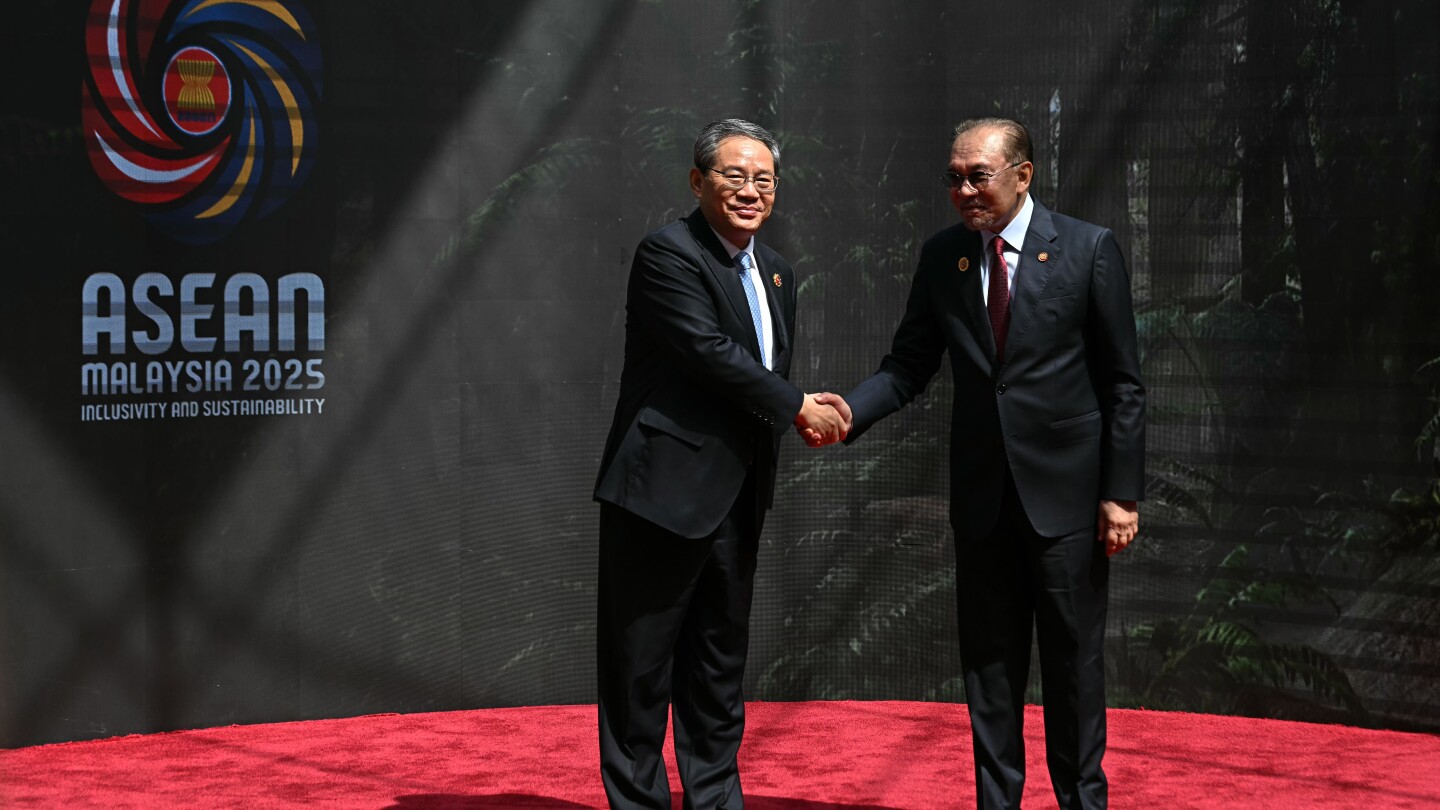China and ASEAN sign expanded free trade pact
KUALA LUMPUR, Malaysia (AP) — China signed an expanded version of a free trade agreement with the Association of Southeast Asian Nations as both face increased protectionism from the United States, and Chinese Premier Li Qiang emphasized his country’s close ties with the region.
“Unity is strength,” Li Qiang told an ASEAN-China summit meeting after the signing, stressing that closer cooperation could help overcome global economic uncertainties.
The signing of the ASEAN-China Free Trade Area 3.0 came on the final day of the annual ASEAN summit and related meetings and was witnessed by Li Qiang and Malaysian Prime Minister Anwar Ibrahim, who is serving as ASEAN chair this year.
It’s the third revision of the long-standing agreement, which was first signed in 2002 and came into force in 2010. The free trade area covers a combined market of more than 2 billion people and lowers tariffs on goods and boosting flows of services and investment.
Two-way trade has surged from $235.5 billion in 2010 to nearly $1 trillion last year.
Southeast Asian political analyst Bridget Welsh said the upgraded pact would benefit both sides, especially in the areas of supply chains and sustainability.
“It also speaks to a global reality that non-U.S. countries are coming together to strengthen trade relationships for their prosperity as a recoupling with the U.S. is ongoing,” she said,
The prospect of a deepening trade conflict between China and the U.S. has risked weakening economic growth worldwide.
But a U.S.-China trade deal appeared to be drawing closer, officials from the world’s two largest economies said Sunday as they reached an initial consensus for President Donald Trump and Chinese leader Xi Jinping to aim to finalize during their high-stakes meeting.
Trump is set to meet with Xi on Thursday in South Korea, the final stop of his trip through Asia.
Officials said the ASEAN-China Free Trade Area 3.0 is expected to broaden integration across the region by covering new areas such as digital trade, the green economy, sustainability and support for small and medium-sized enterprises, which make up the majority of ASEAN businesses. The agreement is designed to make trade benefits more accessible, improve market entry for smaller players, streamline non-tariff procedures and lower regulatory barriers.
“ASEAN–China cooperation is important primarily because China has been ASEAN’s largest trading partner for many years. But one must also take note that ASEAN is now equally important to China, making it a two-way relationship in trade,” Malaysia’s Trade Minister Zafrul Aziz said Sunday.


